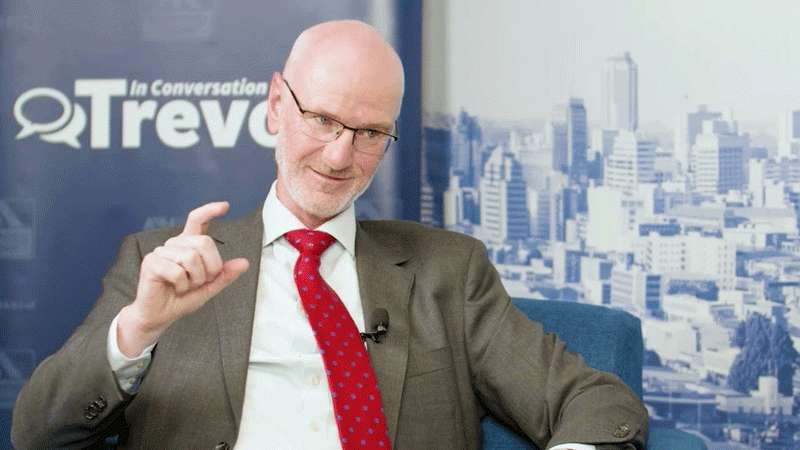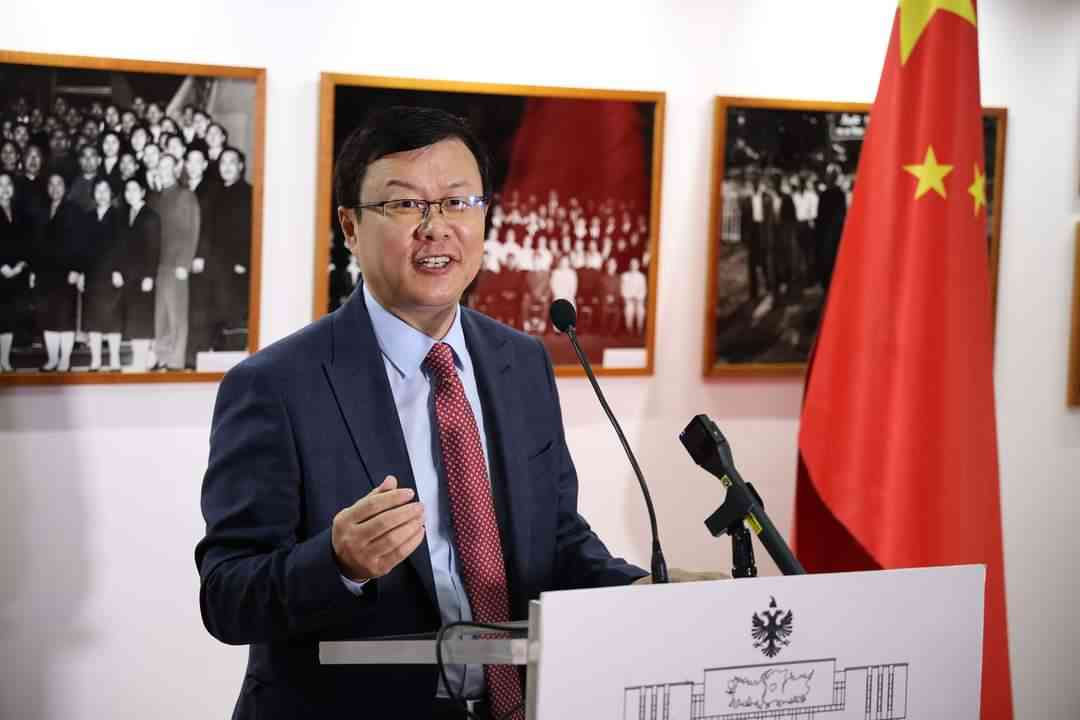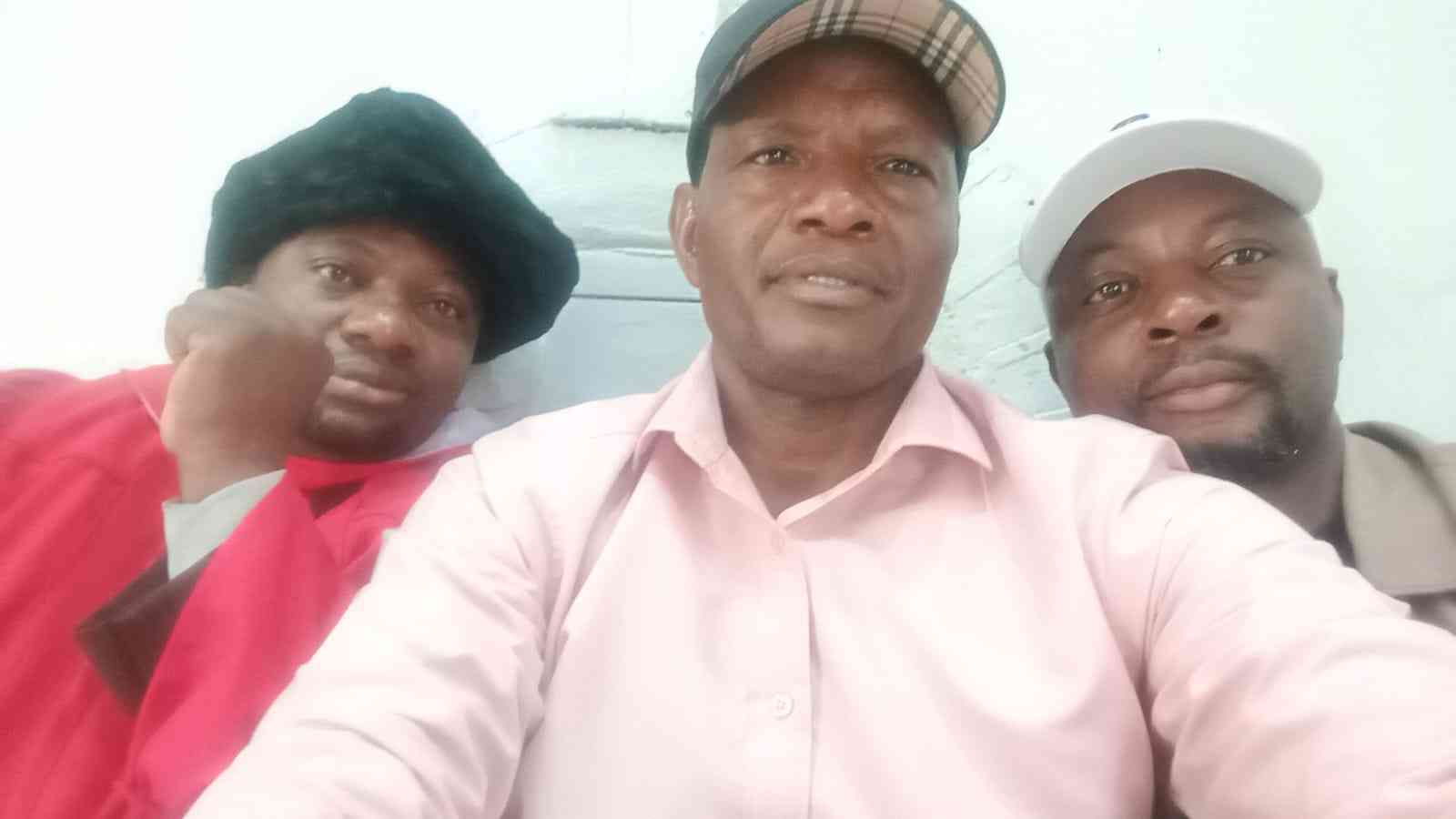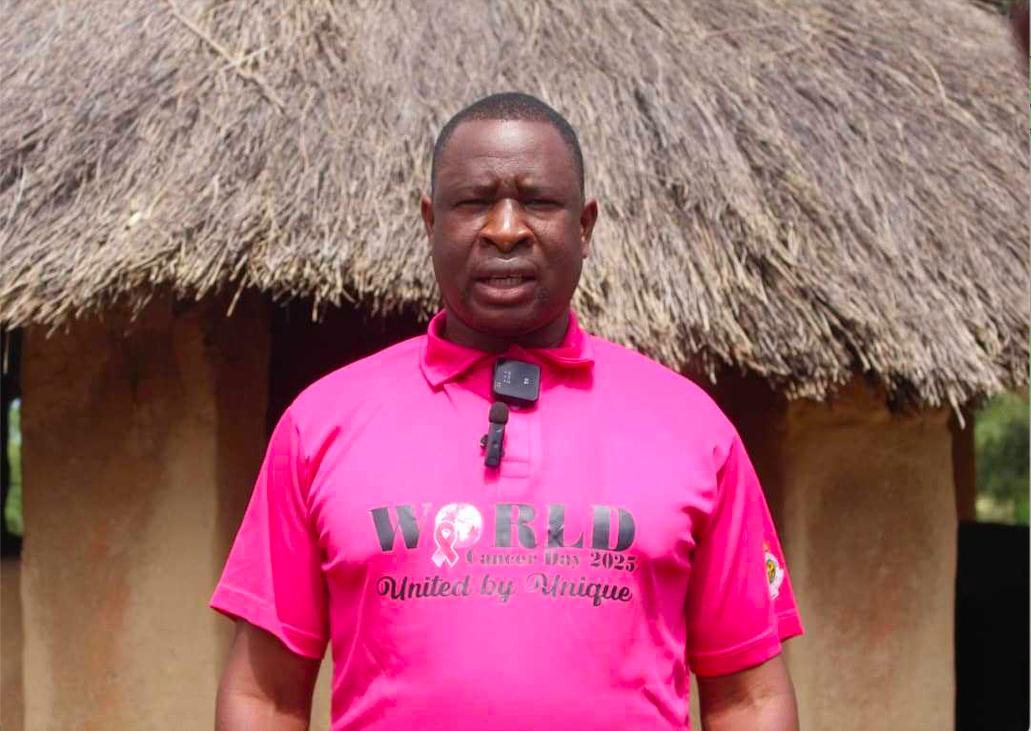
Jamboo Financial Services firm CEO Ciaran McSharry says Zimbabwe’s big diaspora population provides huge opportunities for financial services providers.
McSharry (CM) made the observation when he appeared on the platform In Conversation with Trevor, which is hosted by Alpha Media Holdings chairman Trevor Ncube (TN).
Below are excerpts from the interview.
TN: Today. I'm in conversation with Ciaran McSharry, chief executive officer of Jamboo Financial Services, at digital financial services company.
- Welcome to In Conversation with Trevor UK series brought to you by the Nyaradzo Group. Ciaran McSharry, we meet again.
CM: Indeed and absolute pleasure. Nice to see you again and welcome to the UK.
TN: Thank you. So the last time we were together two years ago we looked at the banking terrain, your time you had spent with First Bank and as I was watching the episode yesterday in preparation for this I was reminded that we talked about the future of mobile banking, Bitcoin and Blockchain and digital banking generally and now you are CEO of this startup Jambo Financial Services which is a digital financial services company.
- Unpack to us what the thinking is around Jumbo Financial Services?
CM: The Jambo was founded by two of your fellow countrymen (Innocent Chinyama and Chini) who came up with the idea that the African diaspora as an entity are underserved and they are often marginalised from a banking and financial services perspective.
- In Conversation with Trevor: Chisamba: Let’s be proud of ourselves
- In Conversation with Trevor: ‘I tried to change Zanu PF from within’ – Margaret Dongo
- In Conversation with Trevor : How car crash changed my life
- In Conversation With Trevor: ‘We lost our humanity’
Keep Reading
So the idea was born that we could create a bank here in the UK to serve, initially the UK African diaspora
TN: In the UK?
CM: Yeah and I think you know officially that's about 170 000 to 180 000 Zimbabwean diaspora here, but I think that's understated in terms of the numbers.
The idea is to build a one-stop financial services hub that is essentially for Africans founded by Africans, run by Africans and to give them control over their financials and their financial services.
So the idea basically is that when you come here let's use a care worker or an NHS worker which is where probably the majority of Zimbabweans are, so they get paid, the salary can be paid into the Jamboo bank account.
They can do all of the UK banking. They can pay their mortgage or rent.
They can buy their insurance here, do their shopping, all of those usual things that you do out of your bank account but the idea also then is that if they want to remit data back home, to family.
They can buy data on the platform and can send it back to mom and dad, brother, sister, whoever.
They can equally remit money back home on that platform by taking money from the Jambo account, moving it to the remittance account, boom, it goes and then through strategic partnerships we plan to also open insurance and investment opportunities for the diaspora.
Again, they can do all of that through their App and that can work for the customer, but it can also work for our insurance and financial services partners who we are working with as well and that's where I come from.
If you think about it, at the moment a lot of the remittances go back for consumption or some of it is meant to go for consumption, some of it for investment but the reality is we all know because of the way it's managed.
It goes through the money transfer agency, bank cash is picked up, it's spent on consumption this way they can actually decide well x% is going to my family for consumption y% is going into my investment account and it's going to be invested I control that.
TN: This is fascinating because what is actually going to Zimbabwe is huge.
- The numbers from the UK to Zimbabwe is huge but the disadvantage, looking at What advantages are you offering there?
CM: We are building this out in a phased approach, and we can go into the details of where we are and where the phases are.
The future phase will be the remittances. Our idea here is to build essentially a prepaid debit card, if you like, which can be issued to the account holder in the UK, but they can then have a sibling card which they can send to the family in Zimbabwe.
Let’s say you are sitting at home on a Saturday night and you phone me and you say I have got no money Ciaran. I need some help because I need to go shopping. I can sit on my App and send US$200 to you Trevor. It goes to that card immediately.
You can then go to the shop or you can go to the ATM and you can get it the convenience
TN: It goes to my bank in Zimbabwe?
CM: No. It goes to a prepaid card I have. The account is mine. It sits in the UK until you actually go to the ATM and withdraw the money or you go to the shop and swipe and spend the money only at that point does it leave the account in the UK.
So its digitising, if you like, that you are taking all of that hassle of queuing up at a bank with identification etc.
You are taking that out now, and the idea is that our rates will be more favourable.
Yes, there will be fees, but the fees will be more favourable. I did a test of this when I was in Zimbabwe in May this year on the card…
TN: And so the card is already functional?
CM: Well it's functional. We haven't signed deals. We just did a test so it's in the future, but I did a test. I went to various shops and paid and had no problems.
So all of that worked. I also went to an ATM that was a bit of a hassle trying to find an ATM that worked, but I got one and I only took out US$100 and that's an important figure and I will tell you why because when I looked at the total cost from a Sterling perspective, ATM versus the card, it was marginally more cost effective on the card.
TN: Why is the US$100 more important?
CM: It was a small amount. If I took out US$200 it would be much more cost effective because it's a fixed fee to withdraw.
So that US$3 I paid to withdraw money from the cash point would be US$3 whether it's US$100, US$300... so the cost becomes more favorable.
TN: So let’s say you are done with phase one, describe to us what phase one is all about and what phase two is going to look like?
CM: So phase one is fairly basically allowing you to actually move money into your account, make transfers and so forth.
We have deliberately only opened that up to a small number of people and we did that about two weeks ago and that's all going well. So people have boarded.
They have moved money etc this last week or earlier this week. I should say we launched the mobile data again.
We are doing this slowly, steadily because we want to make sure we iron out any problems before we go public.
So people, customers can now come in and buy data and remit the data.
The next phase is to open a virtual card, which basically means you know when you come here or you go to the shop, you can pay by your phone.
You can do all your transfers online, purchases all of that stuff can be done now from your account and that will go live probably in October this year okay.
TN: Is that part of phase two?
CM: That's part of phase two because phase one was the basics. Phase two data, phase three we'll also at that stage before then launch probably what we call the automatic credit system.
That's essential because we have to have the ability, well it's more about salaries in the early stages, most companies would pay salaries NHS for example be through automatic credit.
If you haven't got that they are not going to have the salary go into your account so we have to have that will go live certainly by October but perhaps before and at the same time the direct debit function is important as well.
That will allow your utility company for example, if you are paying by direct debit, there can say your bill is X, I'm taking the money out of your account at that stage you have a fully functioning UK account so people can, the same way, go to Barley HSBC etc, they have got all of that functionality working.
TN: Phase two?
CM: Beyond that, then will be the remittances and then investments. We are working with a number of companies at the moment already on talking about insurance and investment.
TN: So it's insurance, it's investment, am I right that you are focusing on renewable energy and those kinds of spaces?
CM: It will depend to some extent on where our strategic partners want to go, but if we just take a step back and look at the broader picture...the Zimbabwean market...
TN: Well I'm fascinated by that, that Zimbabwe is your sandbox
CM: Yeah
TN: And perhaps one of the most difficult markets there is. What's been the thinking of saying Zimbabwe?
CM: I spent six years running a bank there. It’s probably the market we know best, so it was a logical step for us to say, okay let's start there and build from there and then we can build out.
So we are already talking to some people from other countries where we can scale this model.
TN: So which other countries besides Zimbabwe?
CM: We haven't decided which country, but if you look back to the remittances yeah there's something like a US$100 billion of remittances coming into Africa every year and I'd say over 50% of that goes to Egypt, Morocco and Nigeria. Add Ghana in there that's another huge one
TN: Nigeria you have red?
CM: Yeah Nigeria, Egypt, Morocco and Ghana are probably the biggest. Kenya is up there as well; they would be to some extent the next logical port of call.
TN: What's going to decide your partnerships?
- How critically important has been finding the right people to build the technology, talk to us about that in the experience?
CM: It's absolutely critical you know and I'm not, I'm not a technical guy.
I'm an accountant, I'm a banker. I know debits, credits and all of that good stuff.
So please don't ask me any technical questions, but we were very fortunate.
Before I came on board the guys had done a demo with one company, Delaps.
No no, it was before Delaps that didn't work out very well.
So we were often then recommended (Delaps) and we got on board with those guys and I have to say I can't speak hardly enough of them.
They have been a fabulous partner.
Somebody who goes above and beyond not only that but actually the CEO has invested some of his money into the business. So he believes in the business. He's put his own money in there and that every step of the way..
TN: I'm asking that question because for viewers watching out there, one cannot emphasise enough the importance of getting the right technology partner.
- The partner who knows what they are doing.
- You have already said you had a terrible experience with one provider, talk to us about the importance of getting just the right technology partner for what you are doing.
CM: I think it's absolutely critical because with a partner, it's a bit like any relationship.
You have to understand each other. It has to be give and take. It can't all be well.
In any startup you make mistakes and the more you can have somebody covering your back and helping you to avoid those mistakes, the better but secondly the focus and detail and what they have delivered has been absolutely superb so they are somebody I couldn't recommend highly enough.
- This United Kingdom series of “In Conversation With Trevor” is brought to you in partnership with Nyaradzo Group. “In Conversation With Trevor” is a weekly show broadcast on YouTube.com//InConversationWithTrevor.










